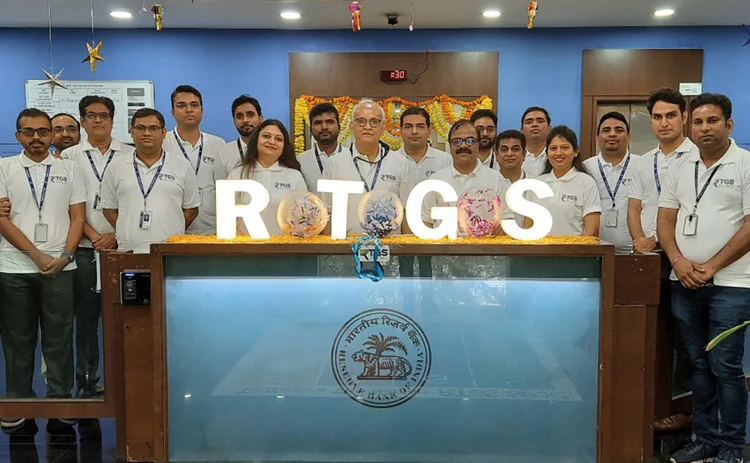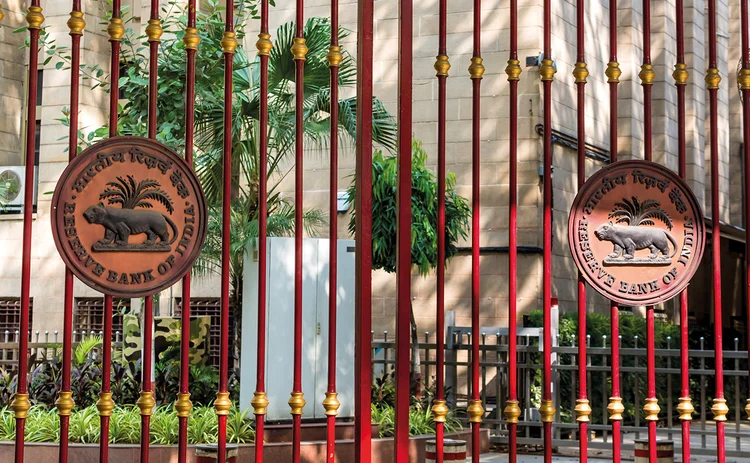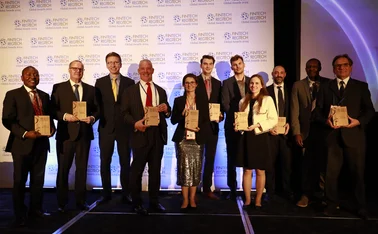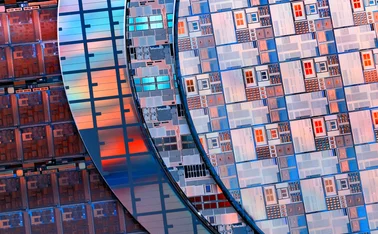
Payments and market infrastructure development – wholesale: Reserve Bank of India
RBI’s work on its 24/7/365 RTGS can serve as model and possibly bedrock for an international 24/7/365 RTGS

Creating and maintaining a continuous system of large value payments is no simple task. And that task can be further complicated by global events, notably staffing challenges related to the ongoing coronavirus pandemic. But the Reserve Bank of India was determined to not allow Covid-19 to disrupt the orderly introduction of its new 24/7/365 real-time gross settlement (RTGS) system. As a result, it conducted ordinary operations under extraordinary circumstances through the establishment of a ‘bio bubble’ for its technology and data specialists that has lasted for more than 100,000 working days, and continues operations amid a third wave of Covid-19.
India was determined to move from a more limited RTGS (where transactions could only be processed from 7am to 6pm, with the system closed on Sundays and every second and fourth Saturday in the month) to a system that is available on every hour of every day, in a bid to facilitate India’s role in global financial markets, support its development as a financial centre and offer wider flexibility to domestic institutions. Its RTGS system, launched in late 2020, is now available all hours of the day, every day of the year, with the exception of the 20–30 minutes it takes to complete end-of-day activities around midnight each day.
The transfer of funds to the beneficiary account is in real time, meaning instructions are immediately processed when they are received.
“Instructions [are] handled on an instruction-by-instruction basis without any netting with other transactions,” Deepak Kumar, executive director at the Reserve Bank of India (RBI), tells Central Banking.
The new RTGS involved significant work upgrading the IBM hardware and software licences in the existing setup as well improving the storage and associated components related to the RTGS and associated systems. Data replication is now almost immediate. A disaster-recovery location facilitates the replication and resumption of operations in 10–15 minutes. The time lag between the closure of books on day ‘T’ and opening books for the next day, ‘T+1’, has been minimised. The thousands of messages that pass through several channels are settled at any point of time, with the new system having both backward and forward linkages to ensure almost zero reconciliation in case of any planned or unplanned disruption. In addition, configuration- and business-process-level changes were made in associated systems, such as the RBI’s accounting system.
This work would not have been conducted successfully without contingency planning and considerable sacrifice by RBI staff. On March 18, 2020, RBI officials created the bio bubble, enabling staff to maintain critical payments infrastructure in the height of the first Covid-19 wave. The bio bubble was originally intended to be what Kumar calls “a stop-gap, short-term arrangement”. But it was repeatedly extended, resulting in it lasting until August 1, 2021. On average, 255 people worked in the bubble for 501 days, with 127,755 days of total work conducted within the bubble. And in the last week of December 2021, the bio bubble was reactivated in response to the third wave of Covid-19. It remains active to maintain data storage and memory.

India’s upgraded RTGS system went live on December 14, 2020, and has experienced no unplanned system issues while handling billions of transactions per month. Settlement numbers have also risen. The volume of transactions handled by the system almost doubled during its first year of operation, with 5 billion transactions carried through the RTGS in December 2021 compared with 2.5 billion in December 2020. The value of transactions, meanwhile, increased by 59% to 14.3 trillion rupees ($188.2 billion) from 9.0 trillion during the similar period.
Kumar says the rapid increase in both volume and value shows the system’s “popularity and adoption” by “citizens”. The figures also indicate that the RTGS is increasingly being used for smaller-value transactions, which may facilitate higher efficiency and economy in the payment settlement system.
India’s RTGS system facilitates transactions between more than 156,431 branches of 242 member banks. The State Bank of India has the highest number of branches, with 27,264, followed by Punjab National Bank and Canara Bank.
The Reserve Bank of India does not charge a transaction fee, and guarantees legal backing of the transaction, which is recorded in the Reserve Bank of India’s books. The minimum value of a payment through the wholesale system is 200,00 rupees – there is no maximum value.
The beneficiary need not visit a bank branch, and remitters can initiate their remittances from their place of work using internet banking services provided by their intermediary bank. There is also an automatic sweep system in place for liquidity management by smaller member banks that may not want to participate in the money market after the normal working hours 24/7/365. These members need to meet the regulatory requirements for deposit balance, and any surplus funds beyond this limit are invested in permitted securities through the system-driven arrangement.
In India, payments and settlements are governed under the Payment and Settlement Systems Act. An RTGS system was originally launched in 2004 by the RBI. The messaging system for India’s RTGS was upgraded to ISO 20022 standards on October 19, 2013.
The RTGS ISO 20022 inclusion, Kumar says, has increased the bank’s abilities for data flexibility, harmonisation, compliance, resilience, competitiveness, processing and analytics. The new RTGS system can also work with potential future systems, including those that use blockchain, distributed ledger or other decentralised finance systems, he adds.
Overall, Kumar says that by reducing “the gap in settlement” and the “amount for settlement guarantee”, the upgraded RTGS system has reduced the average price of payment transactions.
“There is considerable reduction in the working capital requirement for businesses,” he says. “They no longer [need] to pay in advance due to off-RTGS hours or holidays.”
Kumar is hopeful that other central banks will learn from India’s experience and adopt their own 24/7/365 RTGS operations. He also believes that the RBI’s system could be the “precursor of an international cross-border RTGS 24x365 system that would transform the challenges of legacy correspondent banking and international banking”.
“Settlement and counterparty credit risk will become non-existent, and there will be no need to pre-fund a nostro account,” says Kumar. “24x365 availability will drastically improve the end-customer experience and dramatically improve commercial cashflows.”
The Central Banking Awards were written by Christopher Jeffery, Daniel Hinge, Dan Hardie, Victor Mendez-Barreira, Ben Margulies and Riley Steward
Only users who have a paid subscription or are part of a corporate subscription are able to print or copy content.
To access these options, along with all other subscription benefits, please contact info@centralbanking.com or view our subscription options here: http://subscriptions.centralbanking.com/subscribe
You are currently unable to print this content. Please contact info@centralbanking.com to find out more.
You are currently unable to copy this content. Please contact info@centralbanking.com to find out more.
Copyright Infopro Digital Limited. All rights reserved.
As outlined in our terms and conditions, https://www.infopro-digital.com/terms-and-conditions/subscriptions/ (point 2.4), printing is limited to a single copy.
If you would like to purchase additional rights please email info@centralbanking.com
Copyright Infopro Digital Limited. All rights reserved.
You may share this content using our article tools. As outlined in our terms and conditions, https://www.infopro-digital.com/terms-and-conditions/subscriptions/ (clause 2.4), an Authorised User may only make one copy of the materials for their own personal use. You must also comply with the restrictions in clause 2.5.
If you would like to purchase additional rights please email info@centralbanking.com






